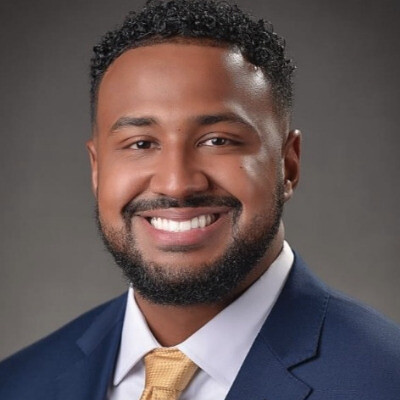Lightning Talk Description:
This Lightning Talk presents a novel simulation-based educational framework developed to prepare interprofessional healthcare teams to effectively respond to patient prejudice toward providers (PPtP). Grounded in the lived experiences of minoritized clinicians, the project translates qualitative data into practical, team-based learning tools that foster resilience, inclusivity, and safer care environments.
Introduction:
Patient prejudice toward healthcare providers (PPtP) refers to biased or discriminatory behaviors from patients directed at providers based on perceived identity factors such as race, gender, or ethnicity. PPtP can erode provider wellbeing, disrupt team dynamics, and jeopardize patient safety. Educational responses to PPtP remain underdeveloped, particularly in interprofessional contexts. This project addresses that gap by developing a simulation framework grounded in the lived experiences of minoritized healthcare providers, aiming to equip teams with strategies for collective, effective response.
Methods:
Simulation scripts depicting PPtP scenarios were developed based on literature and the investigative team’s experience. These scripts were recorded as video vignettes and used in semi-structured interviews with minoritized healthcare providers at a single academic institution. Interview transcripts were analyzed using a realist, semantic coding process by a sub-team, followed by full team consensus to develop a conceptual model. The resulting data informed the creation of a PPtP simulation scenario template and a team performance assessment tool.
Results:
Sufficiency was achieved after six interviews. Fifteen themes emerged and were organized into four key domains:
Inner monologue and metacognitive strategies
Aligning multiple goals (e.g., care delivery, team preservation)
Strategies to manage conflict
Anticipating ripple effects beyond the encounter
These insights were integrated into simulation templates and assessment rubrics to train and evaluate team-based responses to PPtP.
Conclusion:
PPtP presents a significant threat to equitable care and workforce wellbeing. This project provides an evidence-informed, simulation-based education strategy that prepares interprofessional teams to respond with clarity, professionalism, and empathy. It advances the Quadruple Aim by improving both provider wellbeing and patient experience, and aligns with the Nexus Summit’s call for interprofessional collaboration and advocacy.
In support of improving patient care, this activity is planned and implemented by The National Center for Interprofessional Practice and Education Office of Interprofessional Continuing Professional Development (National Center OICPD). The National Center OICPD is accredited by the Accreditation Council for Continuing Medical Education (ACCME), the Accreditation Council for Pharmacy Education (ACPE), and the American Nurses Credentialing Center (ANCC) to provide continuing education for the healthcare team.
As a Jointly Accredited Provider, the National Center is approved to offer social work continuing education by the Association of Social Work Boards (ASWB) Approved Continuing Education (ACE) program. Organizations, not individual courses, are approved under this program. State and provincial regulatory boards have the final authority to determine whether an individual course may be accepted for continuing education credit. The National Center maintains responsibility for this course. Social workers completing this course receive continuing education credits.
The National Center OICPD (JA#: 4008105) is approved by the Board of Certification, Inc. to provide continuing education to Athletic Trainers (ATs).
This activity was planned by and for the healthcare team, and learners will receive Interprofessional Continuing Education (IPCE) credit for learning and change.


Physicians: The National Center for Interprofessional Practice and Education designates this live activity for AMA PRA Category 1 Credits™. Physicians should only claim credit commensurate with their participation.
Physician Assistants: The American Academy of Physician Assistants (AAPA) accepts credit from organizations accredited by the ACCME.
Nurses: Participants will be awarded contact hours of credit for attendance at this workshop.
Nurse Practitioners: The American Academy of Nurse Practitioners Certification Program (AANPCP) accepts credit from organizations accredited by the ACCME and ANCC.
Pharmacists and Pharmacy Technicians: This activity is approved for contact hours.
Athletic Trainers: This program is eligible for Category A hours/CEUs. ATs should claim only those hours actually spent in the educational program.
Social Workers: As a Jointly Accredited Organization, the National Center is approved to offer social work continuing education by the Association of Social Work Boards (ASWB) Approved Continuing Education (ACE) program. Organizations, not individual courses, are approved under this program. State and provincial regulatory boards have the final authority to determine whether an individual course may be accepted for continuing education credit. The National Center maintains responsibility for this course. Social workers completing this course receive continuing education credits.
IPCE: This activity was planned by and for the healthcare team, and learners will receive Interprofessional Continuing Education (IPCE) credits for learning and change.
Learners can claim CE credit by completing the Daily Evaluation.






